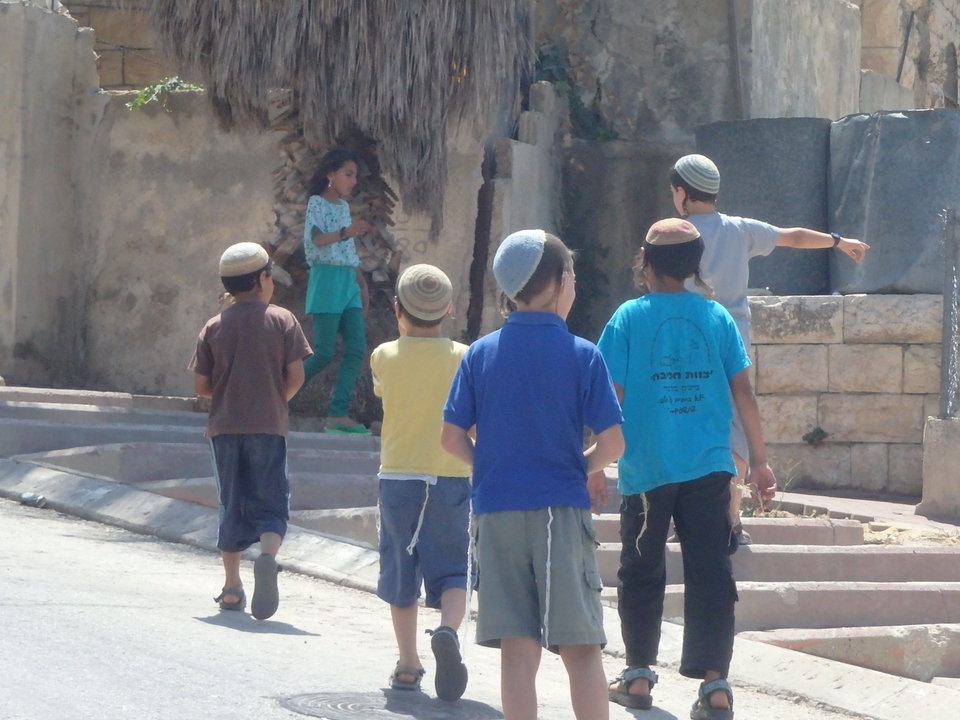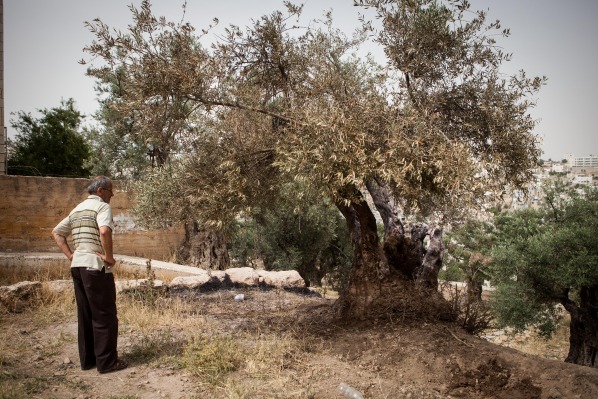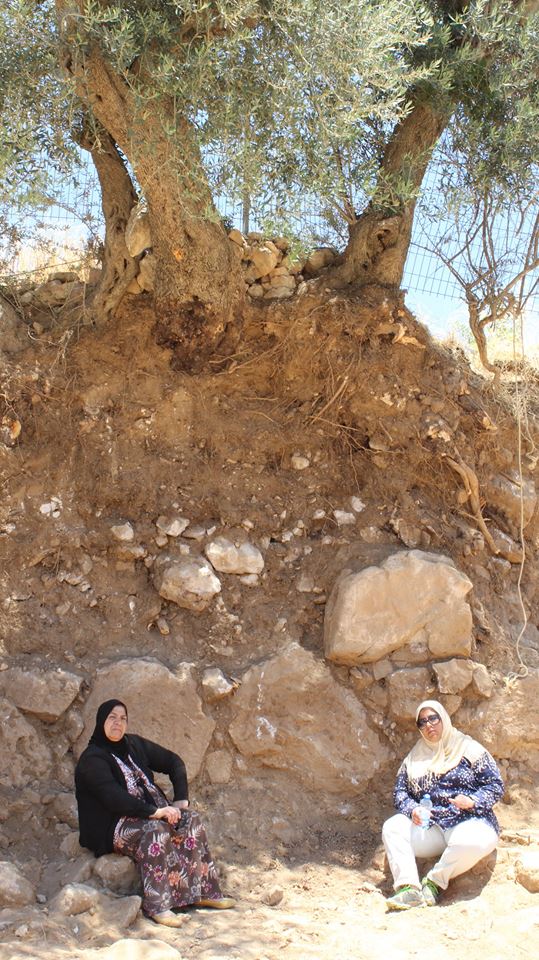Tag: Tel Rumeida
-
Video: Free the bubbles
30th July 2014 | International Solidarity Movement, Khalil team | Hebron, Occupied Palestine At approximately 1 pm on July 28th, international volunteers made giant bubbles with Palestinian children to celebrate Eid, in Tel Rumeida, al-Khalil (Hebron). Several settlers passed by in their cars and were visibly annoyed, and two stopped to complain to the Israeli soldiers…
-
The Roman tree
7th June 2014 | International Solidarity Movement, Khalil team | Hebron, Occupied Palestine At approximately 1:00 pm on June 4th, a burning olive tree was located in the vicinity of Tel Rumeida, al-Khalil (Hebron). The Palestinian firefighters extinguished the fire with no assistance from the occupying Israeli military. As an occupying state, Israel is legally responsible for…
-
Action alert: Letter writing campaign against criminal activity in Tel Rumeida
19th May 2014 | International Solidarity Movement | Occupied Palestine The Israeli occupation uses many methods to take over land – from settlements and military camps to the nature reserve and political treaties. However, the Abu Haikal family of Tel Rumeida in Al-Khalil (Hebron), faces a much more unexpected enemy: archaeologists. Currently, the family home is…



